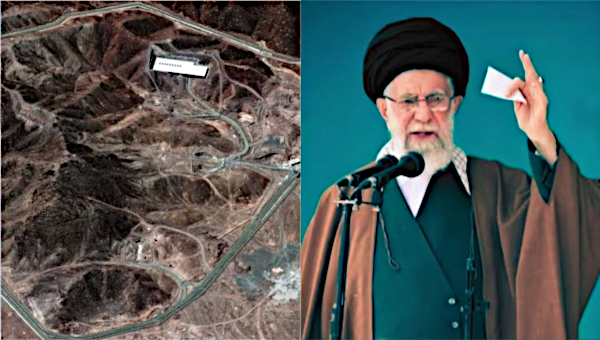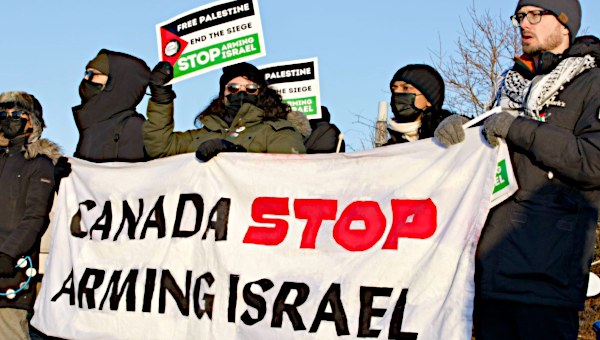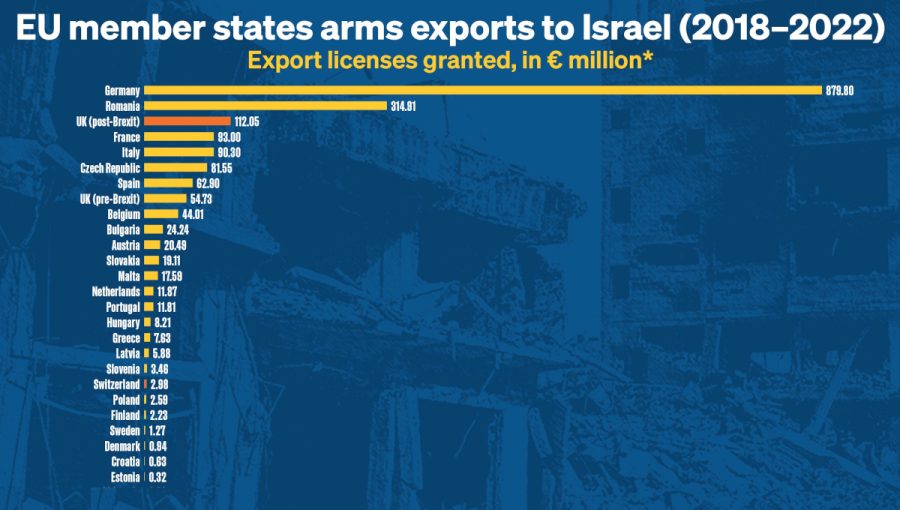Stop the War Now
The present conflagration in Gaza is perniciously criminal because it was foreseen and could have been averted. The most enraging aspect about it is its wanton wastefulness and the cynicism of both leaderships. Had the two sides agreed to negotiate – something they will inevitably have to do in the wake of this slaughter – the conflagration could have been avoided.
 The immediate cause of the conflagration – the asymmetry of power between Israel and Hamas – was well known in advance. After sending increasing numbers of rockets into Israeli towns, with longer range, heavier loads and more precise targeting, Hamas leadership cannot claim to be shocked by Israel’s reaction; especially not after Lebanon 2006! The Israeli claim that no state would have tolerated this situation is plausible, but is not, as Israelis would have it, a comprehensive explanation as to how the situation developed.
The immediate cause of the conflagration – the asymmetry of power between Israel and Hamas – was well known in advance. After sending increasing numbers of rockets into Israeli towns, with longer range, heavier loads and more precise targeting, Hamas leadership cannot claim to be shocked by Israel’s reaction; especially not after Lebanon 2006! The Israeli claim that no state would have tolerated this situation is plausible, but is not, as Israelis would have it, a comprehensive explanation as to how the situation developed.
As Israel is not willing to pay the internal and international price for re-conquest of Gaza, it is resorting to the same strategy it employed in Lebanon in 2006, namely punishment: exacting maximum, disproportionate destruction and casualties from Gazans in order to “burn into their consciousness” the invincibility of Israel – a rather strange term for Jews to have used after the holocaust. The Israeli leadership cannot claim to be surprised by the horrific pictures of dead civilians streaming from Gaza. Everyone knows how densely-populated the Gaza Strip is, just as they know that Hamas is embedded in the population. Israel knew but remained undaunted by the horrible results of its planned actions. Israel forbade journalists to enter Gaza precisely to limit the reporting of such scenes, which it knew would dominate the screens and tarnish its image.
Most people react at gut level to the scenes from Gaza; indeed, who can remain unmoved by the stream of dead and wounded children in Al-Shifa hospital, or at the scenes of siege and bombardment of cities and refugee camps? Still, emotion and anger must not replace analysis. There is nothing in Gaza that has not also occurred in the Falkland Islands, Yugoslavia, Chechnya, Iraq, Afghanistan, or is happening now in West Pakistan. This is not said in order to exonerate Israel, but to raise the much bigger problem of the character of present wars and to avoid the racism that singles out Israelis. Similar actions have been carried out by Russians and are carried out by British, Turkish, American or Canadian forces. We might recall the total destruction of the city of Grozny in Chechnya or the bombing of schools and civilians in Serbia. The disproportionate ratio between Afghani or Iraqi civilians killed and NATO forces’ casualties is no different from that which prevails in Gaza. The British prevented the press from entering the Falklands to avoid reporting of atrocities; Pakistani civilians are killed in almost every American raid across the border into West Pakistan. What is so hard to realize – not to concur with – is that we live in an era where the Law of War is no longer practised.
A great disparity now exists between our conceptions of how war ought to be fought and the way present wars are actually fought. Prevalent civilian conceptions of war are based on post-WW2 liberal conceptions of human rights and international legality, while the conditions which prevail in current wars defy the very definitions on which the International Law of War was founded. Present-day, large-scale armed conflicts are mostly not “wars” as defined in international law; they are not between established states, nor are they conducted between armies. They do not end with white flag surrender and in peace agreements – they do not clearly end. They are disproportionate by intention, in order to shock and awe. Civilian infrastructure and civilians are the main targets and comprise the vast majority of the casualties. Combatants are not necessarily state soldiers; they span a wide range of men, women or even children (soldiers) from social and religious movements to mercenaries, international volunteers and private military companies. Fighters use civilian locations to avoid detection and use civilians as human shields.
Present-day wars are asymmetrical in the sense that one side employs overwhelmingly hi-capital hi-tech to achieve supremacy and spare (its) lives at the expense of vast, indiscriminate destruction and disruption of life and wanton killings of non-engaged people. In turn, these methods of overkill and destruction become by themselves a cause of radicalization and recruitment for the low-tech fighters. As the fighters are not legal combatants, they are not treated according to the terms of the Geneva Convention. Captives are detained without trial, mistreated, tortured or murdered. We have yet to come to realize that present day war has returned to barbarism, and we have to think of long-term strategies to reverse this horrendous tendency.
Israel is also to blame in all these respects, but it is not the only culprit. It follows the major powers: the USA and NATO. Nor can, so called “freedom fighters” be exonerated when, in the name of a just cause, they break all humanitarian rules. No end justifies all the means!
Having mentioned the immediate cause and the form that the conflagration took, let us turn to the root causes underpinning it. The argument that Israel has withdrawn from Gaza and therefore there is no justification for hostilities from Gaza against Israel is deceitful. To begin with, Israel’s withdrawal in August-September 2005 was not part of any peace agreement with the Palestinians or part of the creation of a Palestinian state alongside Israel; it was a unilateral step.
Israel did not free Gaza, it only moved from direct control from inside to a more efficient, indirect control from the outside. The evacuation of 8,000 Jewish settlers amidst 1,400,000 Gazans was concomitant to the decision to make Gaza a Palestinian enclosure. As the settlements required protection by large military force, they were removed by Prime Minister Sharon with a lot of international fanfare about Israel’s sacrifice for peace. Gaza, however, remained locked and encircled by Israel: with no free access to the West Bank or Egypt and blockaded from the sea and air. Israel also controls all the passages to Gaza. Palestinian-American attorney Gregory Khalil wrote: “Israel still controls every person, every good, literally every drop of water to enter or leave the Gaza Strip. Its troops may not be there … but it still restricts the ability of the Palestinian Authority to exercise control.”
Israel claims that under International Law Gaza is no longer occupied as Israel has no effective control in Gaza. This, however, remains in dispute: Gaza does not belong to any sovereign state and Israel is in effective control of all its borders. Mahmoud Abbas, President of the Palestinian Authority, declared that the status of the evacuated areas has not changed. Human Rights Watch also contests Israel’s claim about the end of occupation, so does the International Court of Justice and so does the United Nations Relief and Works Agency for Palestinian Refugees (UNRWA).
The introduction of the Qasam missiles has to be seen in this context of continued Palestinian armed resistance to Israeli occupation. Qasam is a homemade primitive rocket made from multi-use materials, with a range of about 4-5 kilometers. It is a flying artillery rocket lacking any guiding system. The Qasam was first launched into Israel in October 2001, during the second Intifada. Over eight years, thousands of rockets have been fired into Israel from Gaza; fatalities over this whole period were about 18. However, the weapon has a grave psychological effect as it sows fear, disrupts normal routine, causes material damage and cannot be stopped. The Israelis succeeded in preventing the transfer of production of Qasam missiles to the West Bank which lies closer to Israel’s economic and population centers.
While the Israeli occupation dominates, controls and disrupts every aspect of Palestinian life, the Israeli population demands its government do everything to enable peace-like existence for Israelis. This power asymmetry is taken for granted by the majority of Israeli Jews. Many Israelis refuse to see the cause-and-effect relation between occupation and resistance. The occupation is not questioned but resistance is dissociated from it and is seen as the unrelated innate wickedness of the Palestinians. While the peace talks have stalled and Jewish settlement has intensified, armed resistance is regarded as terrorism. Israelis expect their government to find an effective technical-military answer to anything the Palestinians can do, without considering politically the occupation itself. Moreover, the majority of Israelis regard the occupation as justified from a national-religious viewpoint.
The situation deteriorated during 2006: as part of his push for democracy in the Arab world, President Bush demanded elections in the Palestinian Authority, against Israel’s advice. Hamas (“the Islamic Resistance Movement”) won the plurality in democratic elections for the Palestinian Authority’s parliament and government. Hamas was willing to negotiate a long duration ceasefire with Israel but, unlike Fatah which supports a two-state solution, Hamas does not recognize the right of Israel to exist as a Jewish state and is committed to establishing a Muslim state over the whole of Palestine where Jews will be tolerated. To Israelis this position is a non-starter.
After the elections, the U.S. and the EU refused to accept the results and concurred with Israel in categorizing Hamas a terrorist organization and boycotting it. The rift over the legitimacy of Hamas government or the Abbas Presidency deteriorated into a bitter internal war where many unarmed civilians were cruelly killed. Since mid 2007 Fatah rules in the West Bank and Hamas rules Gaza. As part of the competition between the factions in Gaza both intensified the firing of Qasams against Israel and Israel retaliated heavily.
Hamas demands control of the passages to Gaza. Israel and Egypt have reached an agreement about control of the borders between the Gaza Strip and Sinai and refuse to hand over the passages to Hamas. The Egyptian regime is weary of Hamas as it is an offshoot of the Islamic Brotherhood in Egypt – the main opposition to the regime. Israel maintains control by halting the passage of essential supplies and fuel to Gaza in order to punish Hamas. Israeli stoppages are a form of collective punishment as they affect everyone. The situation has brought the poor economy almost to a standstill. A disaster has been averted by funneling supplies through civil society organizations and the UN. Under these circumstances of want, tunneling from under the border of Gaza to the Egyptian side became an industry and replaced the often closed passages. No one knows exactly how many tunnels exist, probably hundreds. The tunnels have become a major route of supplies for civilians as well as for the militias. People, civilians and military experts, also move through the tunnels, as do heavier weapons and high explosives.
While the pro-Western Arab regimes are critical of Hamas they have tried, to no avail, to breach the rift among Palestinians which is detrimental to the Palestinian cause. The rift has also enabled “radical regimes” in the Arab world further entry into the conflict. Hezbollah has trained and supplied arms to Hamas and Syria hosts its Leadership; Iran foots the bill. During 2007-2008 the numbers of missiles as well as their range and precision increased. The new types were imported Katyushas and Grad missiles. The range of these rockets is now more than 40 kilometers which brings close to one million Israelis within the potential range of fire. The new situation resulted in increased retaliations by Israel.
In June 2008 Hamas declared a ceasefire (tahadiya); it was not directly negotiated with Israel but brokered through Arab mediators. Though the number of rockets fired was reduced they were not entirely stopped, neither did Israel open the passages for regular supplies. In December the ceasefire came to an end and the rocket fire resumed. That is the background to the recent operation.
Fighting in the densely-populated and built-up Gaza Strip would be extremely difficult for any army. The entire population is stuck under fire and cannot flee. Unless air power or artillery is used indiscriminately, which cannot be done, the Israelis do not have an advantage and will incur very heavy casualties as they move into the maze of trapped allies. They know this and are very sensitive to casualties which may turn the internal support for the campaign into rage. For these reasons they chose to dissect the Strip, in order to curtail Hamas movement, and are conducting an attrition siege aimed at depleting Hamas munitions, manpower and its will to fight. A precondition for the success of such a strategy is unlimited time which the Israelis do not have. The mounting unavoidable numbers of civilian casualties in this type of war and the breakdown of organized life herald a civilian disaster and are mobilizing the world against Israel.
Even if one regards the cynical politics of Hamas as equal to the politics of Israel, the fact that Hamas behavior is despicable does not justify Israelis becoming war criminals, or to have almost starved 1.5 million people for 18 months – just not to talk. It is immoral to create a deterrence for Israel by exacting the lives of thousands of innocent children and civilians. There is an alternative – to talk! One talks to enemies! Hamas was elected democratically – whether Israelis like it or not. It reflected the radicalization among Palestinians after us quelling brutally the second Intifada. So, the more they are beaten, the greater their despair and the more radical they become. What will happen after this campaign? What horrible new generation will grow out of the debris of Gaza?
Israelis want to live as if there is no conflict, but while the others suffer so much that is not possible. By the missiles Palestinians make Israelis and the world aware of their existence and suffering. The logic of their armed struggle is not to win militarily – they cannot – but to keep the world aware of their dire condition. Otherwise the world will forget them like it forgets Africa. They cannot win but Israel cannot win either. And we all gradually loose the morality of our existence.
The war must be stopped now; it cannot achieve the defeat of Hamas. Israel will have to continue to struggle with or negotiate with Hamas. One of the unintended consequences of this campaign will almost certainly be the further decline of Fatah and the isolation of Israel. The Israelis overestimate military solutions and overestimate the goodwill of the world toward them. The cumulative erosion of Israel’s good standing among nations is slow but very tangible these days. There is no military solution, there is no solution while the occupation continues. Israel and Hamas must realize this and talk. •





